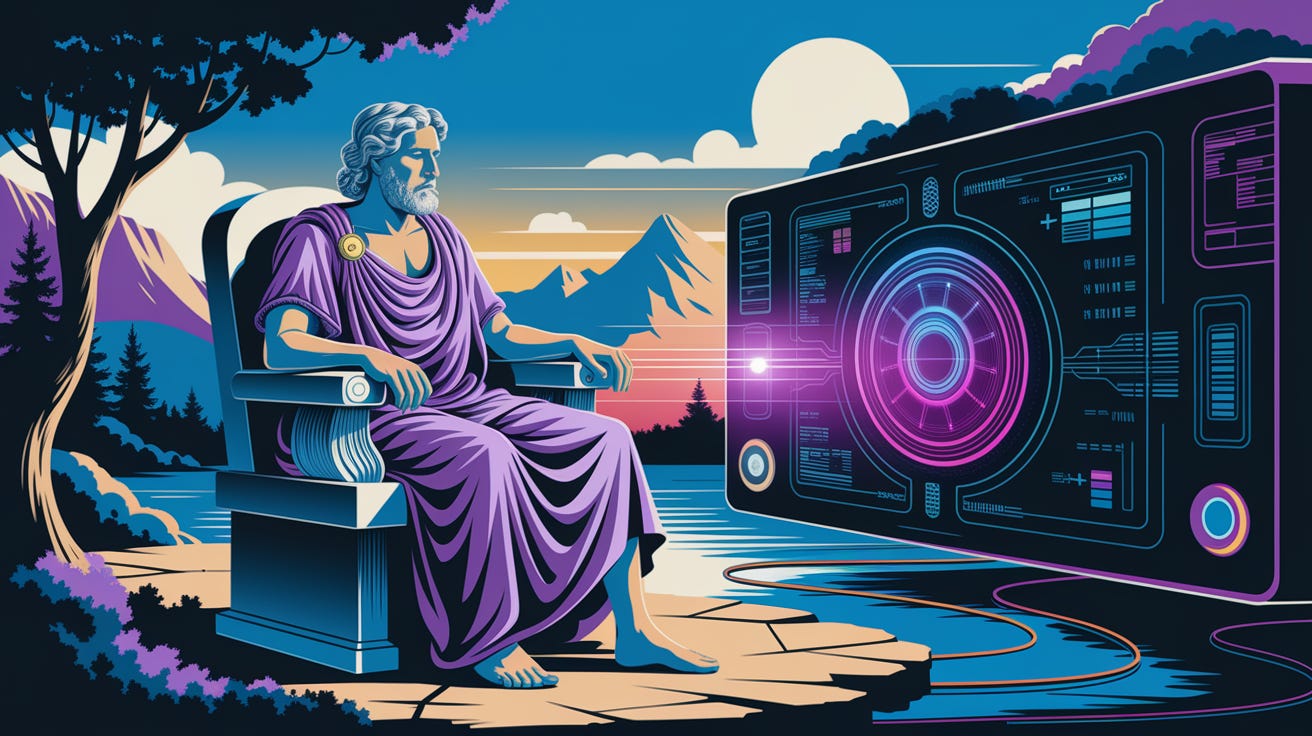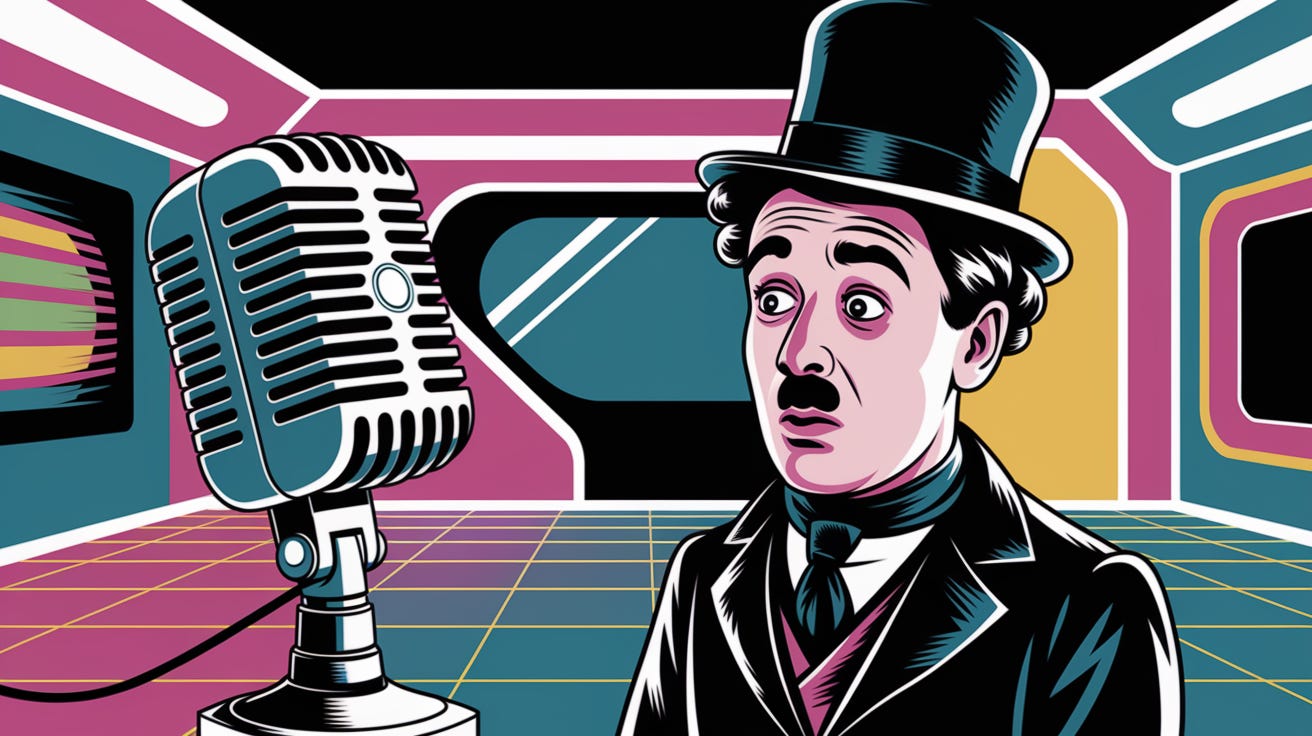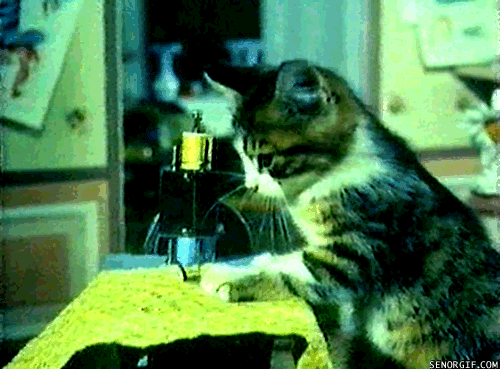AI Panic: The Latest Chapter in 2,000 Years of Storytelling Technology
Why Tech Anxiety Is as Old as Storytelling (And Just as Persistent)
Hi friends! It's been a while!
After a pause due to parental leave and diving into some new professional projects, I'm now back. If you forgot what this is—hi! This is your friendly neighborhood newsletter on AI & Film, where we explore the intersection of filmmaking and artificial intelligence, highlighting the challenges, opportunities, and find inspiring and eye-opening work that’s being created with these wild new tools.
A quick word of thanks for all the support on my first two issues! I was thrilled to see my post on best and worst use of AI in Documentary republished in No Film School and quoted in the Curious Refuge Documentary Course. Thanks, too, to Alex Clark for quoting me in his excellent series on AI & Video for Video Consortium, and to Charles Haine for recommending me to teach an AI & Film college course—my first!
Most newsletters will focus on the present or future. But today's newsletter explores the past.
In many ways, this moment seems unique, unprecedented. But with another lens, we've kinda been here before. We'll dive into thousands of years of technological anxiety and what we can learn from it in our present moment.
You'll find a cute baby animal gif at the end. Because some traditions are worth keeping.
The OG Tech Skeptic: Plato
Here's something that blew my mind when I first heard it (back in grad school at NYU Tisch’s ITP): Plato was perhaps the first documented tech skeptic in media. He was worried that the newfangled technology of...wait for it…WRITING... would destroy human memory and wisdom. He was legit worried that writing things down would make people stop memorizing and truly understanding information.
His said (memorialized via Socrates) that writing would "create forgetfulness in the learners' souls, because they will not use their memories." He thought people would become "hearers of many things and will have learned nothing; they will appear to be omniscient and will generally know nothing."
Sound familiar? It's basically the "AI might make us lazy and stupid" argument... but from 370 BC. lol.
The Pattern Keeps Repeating: The Greatest Hits of Media Panic
1440s: Printing Press // Scholars worried that it would spread misinformation. (15th-century fake news panic)
1830s: Photography // Painters: "Our entire profession is dead!" Narrator: It wasn't.
1920s: Radio // Motion Picture Herald, 1932: "The most serious menace to the motion picture industry." Reality: Became Hollywood's best marketing tool.
1927: Sound in Film // Charlie Chaplin: "They're ruining the great beauty of silence." Silent film stars took panic voice lessons. Studios scrambled to retrofit theaters.
1950s: Television // Theater attendance dropped by half. Studios responded by going BIG - literally - with widescreen formats and spectacular effects.
1990s-2000s: Digital // Quentin Tarantino: "Digital projection is the death of cinema as I know it." Spoiler: Some of today's most stunning films are shot digitally.
2010s: Films on phones or tables // David Lynch gave us this absolutely legendary rant: "If you're playing the movie on a telephone, you will never in a trillion years experience the film. You'll think you have experienced it, but you'll be cheated. It's such a sadness that you think you've seen a film on your f***ing telephone. Get real." Years later, as the technology improved, Lynch completely shifted his position, acknowledging that with headphones in a quiet space, watching on a tablet could provide an experience proportionally similar to sitting at the back of a movie theater.
Our track record at predicting technological impacts is consistently, well, not great. Like… remember when everyone declared "3D is the future of all cinema" (2010), "VR will replace traditional cinema" (2016), or that "Digital will never match film" (2000s)?
Does AI Hit Differently?
Here's the uncomfortable truth, though: while previous tech waves changed HOW we make media, AI can potentially GENERATE it entirely. So there are similarities between what’s happened before, and we can certainly learn from it. But it’s also true that AI's impact might be more fundamental. (Though I’m sure that’s also something people thought about at various stages listed above. Right?)
Still, the historical pattern suggests AI won't "kill" filmmaking - but it might transform it in ways we can't fully predict. Some roles will likely disappear. New ones will emerge.
The real questions are: Who will benefit? Who will be left behind? And how do we—those who, by virtue of reading these newsletters and thinking about these things today, are probably early adopters—shape it thoughtfully and ethically?
Why We Keep Getting It Wrong
We consistently mis-predict technological impacts because we think linearly while tech advances exponentially’ we focus on technical capabilities rather than human behavior’ and we imagine new tech directly replacing old tech when it often creates new or hybrid forms.
Consider the color grading revolution of 2007-2011: When Apple released Color for $999 (versus equipment that previously cost $850k, only accessible to very high-end productions), the industry panicked. Everyone predicted disaster for traditional post-production houses. But the actual outcome? Blackmagic bought DaVinci and made Resolve free, democratizing the entire industry while creating entirely new business models no one anticipated. There were certainly some people who lost their jobs, but I would wager that—because such a wider range of productions started color correcting—there were ultimately more people who gained jobs as independent colorists.
Looking Forward
Maybe instead of asking "Will AI replace filmmakers?" we should be asking "How do we ensure this transformation benefits both creators and audiences?" History suggests that resistance is probably futile…but smart adaptation is essential.
My take is that the creatives who thrive during technological transitions aren't necessarily those with the most technical expertise, but those who focus on fundamentals, develop hybrid workflows, and maintain a vision-first approach that uses tools in service of creative goals—not the reverse.
The digital editing revolution took about 12 years to transform the industry (1989-2001), and the color grading revolution took roughly 4 years. AI tools are evolving even faster: I’ve truly been astonished by the progress that’s been made in the past year. The timeline is compressed, but the fundamental questions remain the same: How can we use these tools to tell better stories? How do we preserve the human elements that make storytelling powerful?
Next newsletter, I’ll talk about some of the great AI videos I saw last week at the Sora Selects LA event. (For the uninitiated, Sora is the video tool of OpenAI, the company that makes ChatGPT).
Until then, here's your cute gif of the issue:
Xoxo,
Kris
P.S. Agree? Disagree? I would truly love to hear from you! Please respond to this email with feedback!
P.P.S. Thank you to Danny Lunden for his help on this newsletter. No Film School for sharing the last issue of the newsletter. Charles Haine for his intro to NFS and Rutgers. And Fred Grinstein for sharing the last issue in the Curious Refuge Doc course!
Images in this post generated by me with gamma.ai - Ideogram 2. The gif is from Giphy.





i wrote a little about this when the generative stuff still felt underdeveloped. really cool to see more context here. (i thought Resolve was a TouchDesigner competitor.)
https://open.substack.com/pub/kyle/p/is-ai-different?r=n1yi&utm_medium=ios
i think i’m still struggling with it because right now, it’s very difficult to tell what the standard hybrid workflows should and will be. i was pretty shocked to see that there are whole youtube radio channels dedicated to generative lofi hiphop, and some even have big audiences. feels really empty. but, on the other hand, the audio preset generators i’ve seen are pretty exciting.